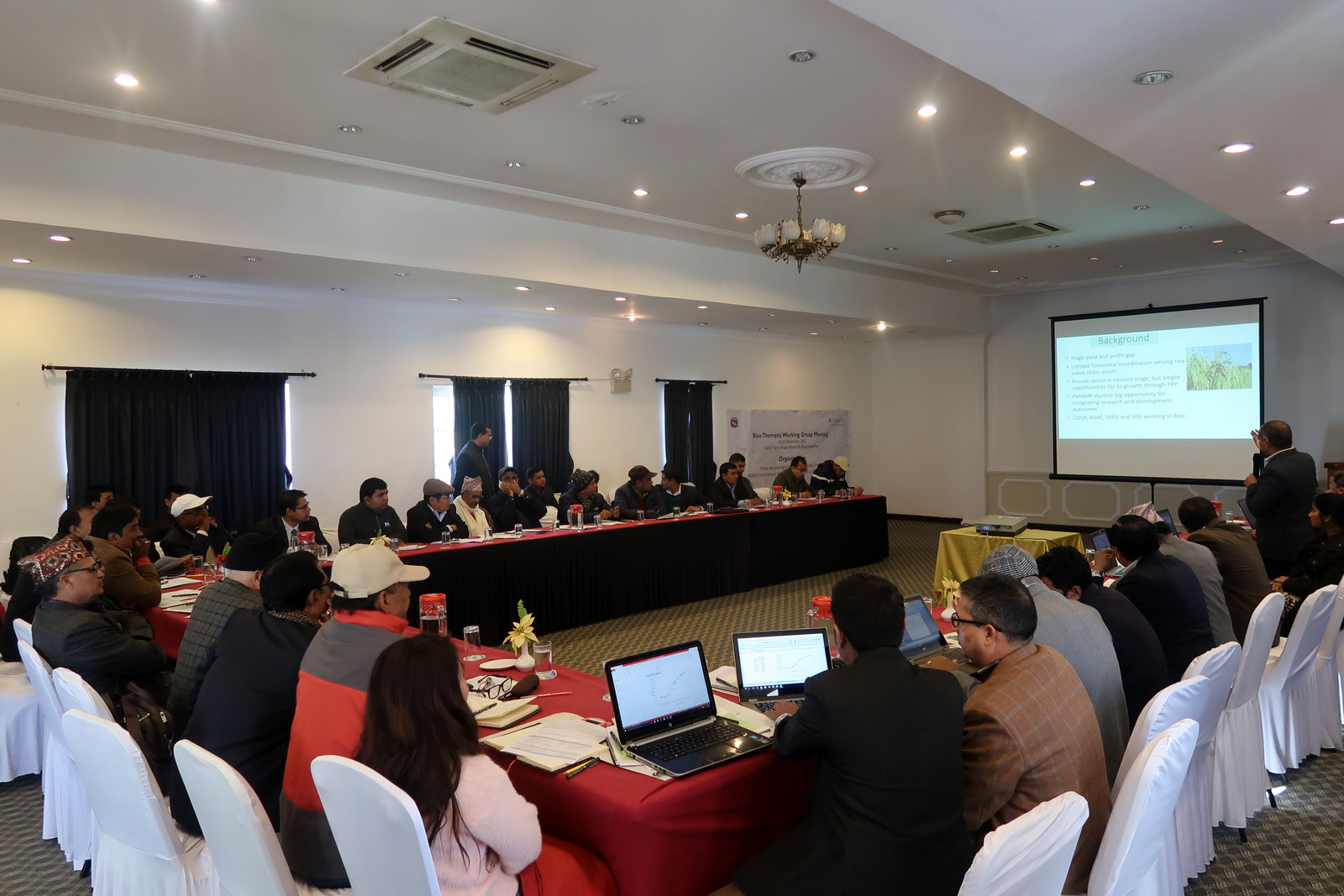CSISA and PMAMP collaboration in Nepal: A new paradigm in extension research
In 2015, the Government of Nepal endorsed a new 20-year Agriculture Development Strategy (ADS), which recognizes the need for new science-led innovations, crop diversification options for income generation, strong seed and fertilizer input systems, mechanization to cope with outmigration and an aging agricultural workforce, and enterprise development to create new jobs and extend essential support services to large numbers of farmers. In support of these priorities, CSISA works with partners who can help to rapidly and broadly increase the adoption of sustainable intensification technologies at scale.
The Prime Minister’s Agriculture Modernization Project (PMAMP), launched in 2016 to help implement the ADS, is designed to enhance productivity and commercialization of major cereals, fish, fruits and vegetables over the next decade. The PMAMP has laid out a structure comprised of super zones (commercial areas of more than 1,000 ha), zones (areas over 500 ha), blocks (over 50 ha) and pockets (over 10 ha). These are defined areas across the country that receive government support to produce certain crops intensively.
CSISA has been working closely with PMAMP from its inception by providing technical backstopping at the central and local levels for the wheat, maize, rice and farm mechanization programs. CSISA sees PMAMP as a key mechanism for scaling up sustainable intensification technologies in Nepal. CSISA has helped PMAMP form working groups and hold forums to facilitate discussion and spark collaboration among stakeholders in Nepal.
In July 2017, CSISA and PMAMP jointly held a national-level wheat working group forum aimed at unifying and coordinating the efforts of 21 public and private stakeholders working on research, extension and private sector development for wheat in Nepal. The forum emphasized the need to identify proven best practices for sustainable intensification of wheat, explored possible pathways for scaling knowledge and technological innovations, and identified knowledge gaps and areas for future research.
Energized by this successful wheat working group meeting, PMAMP took the lead and organized a similar meeting for maize. A rice forum was held with CSISA’s support in December 2017, followed by a subsequent meeting organized with the rice super zone in Jhapa, Eastern Nepal, in May 2018. In February 2018, CSISA and PMAMP held a mechanization forum. Seeing consistent results, PMAMP has now established similar forums and guidelines for other commodities such as fish, tea, coffee and potato.
In addition to the forums, CSISA has provided technical guidance on planning seasonal activities to PMAMP staff, and has facilitated cross-learning events and “train the trainers” courses for super zone and zone technicians and operational committees on how to implement and out-scale sustainable intensification technologies. CSISA has also developed training materials, educational videos and other extension materials for utilization by the cereal and mechanization programs. PMAMP has asked CSISA to help formulate joint plans at the pocket, block, and zone levels in different districts. Many technical training sessions have also been held, focusing on the best maize management practices, scale-appropriate mechanization, mechanized weeding, seed drill operation and calibration, precision nutrient management, mechanized harvesting, integrated weed management and safe handling of herbicides.
This initiative has been useful not only for institutionalizing CSISA’s innovations and findings, but also for designing market-oriented approaches for our private sector partners. With continued technical backstopping and support on developing seasonal work plans from CSISA, PMAMP will carry out agronomic interventions for cereal cropping systems in CSISA’s working domain.
Authors: Cynthia Mathys and Mina Devkota-Wasti
